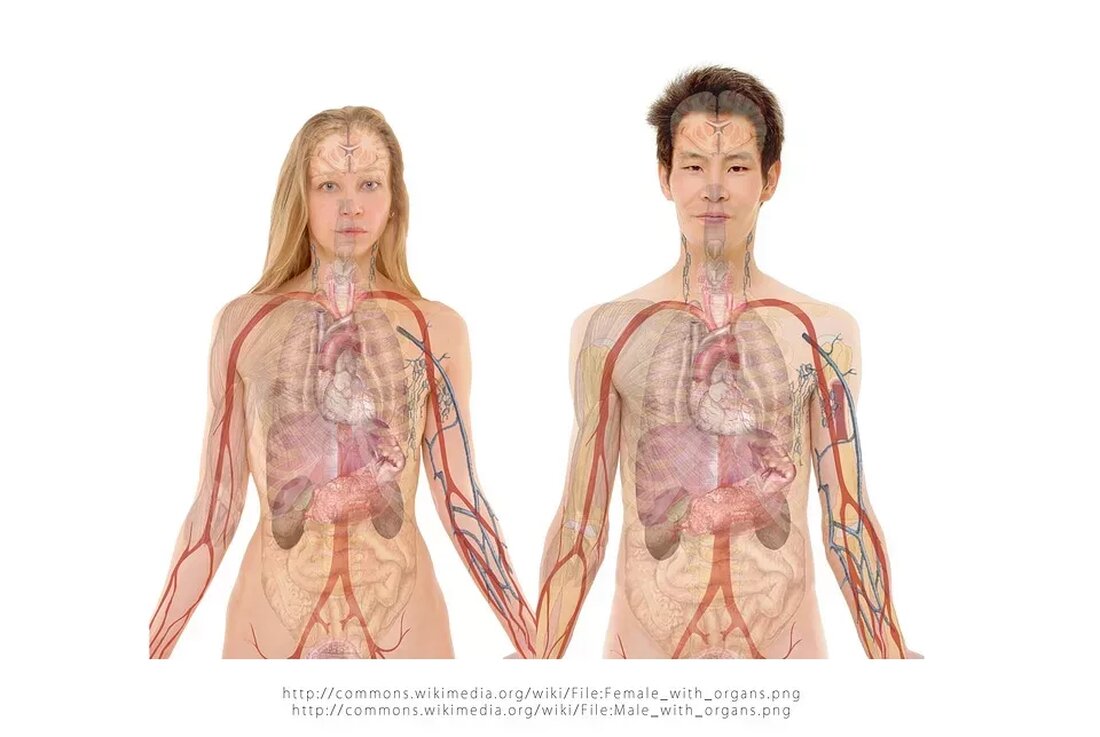Nutritional Psychology: How Our Brains Choose Food
Nutritional psychology studies the complex relationship between the human brain, the environment, and emotional influences on food decision-making. This article is dedicated to the role the brain plays in food selection, as well as the influence of environmental factors and emotions on food choices. In addition, practical applications of nutritional psychology in everyday life are examined. By analyzing these aspects, we can develop a better understanding of how our dietary habits are shaped and influenced, and how we can use this knowledge to make healthier choices. The role of the brain in food decision-making...

Nutritional Psychology: How Our Brains Choose Food
Nutritional psychology studies the complex relationship between the human brain, the environment, and emotional influences on food decision-making. This article is dedicated to the role the brain plays in food selection, as well as the influence of environmental factors and emotions on food choices. In addition, practical applications of nutritional psychology in everyday life are examined. By analyzing these aspects, we can develop a better understanding of how our dietary habits are shaped and influenced, and how we can use this knowledge to make healthier choices.
The role of the brain in food decision-making
The brain plays a crucial role in food selection. Different areas of the brain are involved in this process, including the prefrontal cortex, the hippocampus and the reward center. These regions work together to process information about food, regulate emotions, and make decisions.
The prefrontal cortex is responsible for cognitive control and plays an important role in impulse inhibition. This area of the brain is crucial for evaluating and selecting foods. The hippocampus is responsible for memory and recall. It stores information about previous experiences with food and plays a role in the formation of preferences.
The brain's reward center responds to the sensory properties of food and the release of dopamine, a neurotransmitter associated with reward and pleasure. This reaction can influence eating behavior and lead to a preference for certain foods.
In addition to processing sensory information and regulating emotions, the brain also plays a role in decision-making. Neural activity in the prefrontal cortex and reward center can provide insight into how people evaluate and select foods.
Overall, the role of the brain in food decision-making is complex and multifaceted. Sensory information is processed, emotions are regulated and decisions are made through the collaboration of different areas of the brain. These findings can help develop a better understanding of eating behavior and support the development of strategies to promote healthy eating.
Influence of environment and emotions on food choices
The decision about which foods we consume is determined not only by biological needs, but also by environmental factors and emotional influences. Research has shown that eating behavior is strongly influenced by external stimuli and moods. In this section, we will look at some important factors that influence food choices.
Environment:
– Advertising: Targeted advertising presents certain products in a positive light, which can increase desire for these products.
– Availability: The availability of food has a major impact on what we consume. In supermarkets or restaurants, certain products are prominently displayed, making us more likely to buy or order them.
Emotions:
– Stress: In stressful situations, many people tend to turn to unhealthy “comfort foods” to feel better.
– Reward system: Emotional rewards, such as celebrating with food on happy occasions, can cause us to associate certain foods with positive emotions and therefore prefer them.
It is crucial to be aware of environmental and emotional influences in order to make more conscious dietary choices. By adapting our environment and consciously controlling our emotions, we can positively influence our eating behavior and contribute to a healthier diet.
Practical applications of nutritional psychology in everyday life
Nutritional psychology offers a variety of practical applications that can help us develop and maintain healthier eating habits in everyday life. Here are some ways nutritional psychology can be used in our daily lives:
- Bewusstes Essen: Durch die Anwendung von Ernährungspsychologie können wir lernen, bewusster zu essen und uns stärker auf die Signale unseres Körpers zu konzentrieren. Dies bedeutet, dass wir lernen, aufhören zu essen, wenn wir satt sind, und die Bedürfnisse unseres Körpers besser verstehen.
-
Managing emotional eating: Nutritional psychology can help us develop healthy ways to deal with emotional eating episodes. By learning to recognize our emotions and develop alternative coping strategies, we can better control unhealthy eating habits.
-
Control portions: Nutritional psychology also offers strategies for controlling portion sizes. By learning to recognize proper portion sizes and becoming aware of our eating habits, we can avoid overeating.
-
Changing Eating Habits: By applying nutritional psychology, we can also learn to identify and gradually change unhealthy eating habits. This can help make long-term changes in our diet.
-
Building a Healthy Lifestyle: Nutritional psychology can also help build a healthy lifestyle based not only on diet but also on exercise, stress management, and other health-promoting habits.
Overall, nutritional psychology offers a variety of practical applications that can help us develop and maintain healthier eating habits. By applying these principles in everyday life, we can positively change our eating habits and contribute to better health in the long term.
conclusion
Overall, nutritional psychology shows that food choices are heavily influenced by our brain, the environment and our emotions. These findings can be applied in many ways in everyday life to develop healthier eating habits and improve our well-being. By gaining a deeper understanding of the psychological aspects of nutrition, we can make more conscious decisions and benefit from a more balanced diet in the long term. It is important to continue to advance research in this area to better understand the complex connections between the brain, emotions and nutrition and to develop practical applications for society.

 Suche
Suche
 Mein Konto
Mein Konto
